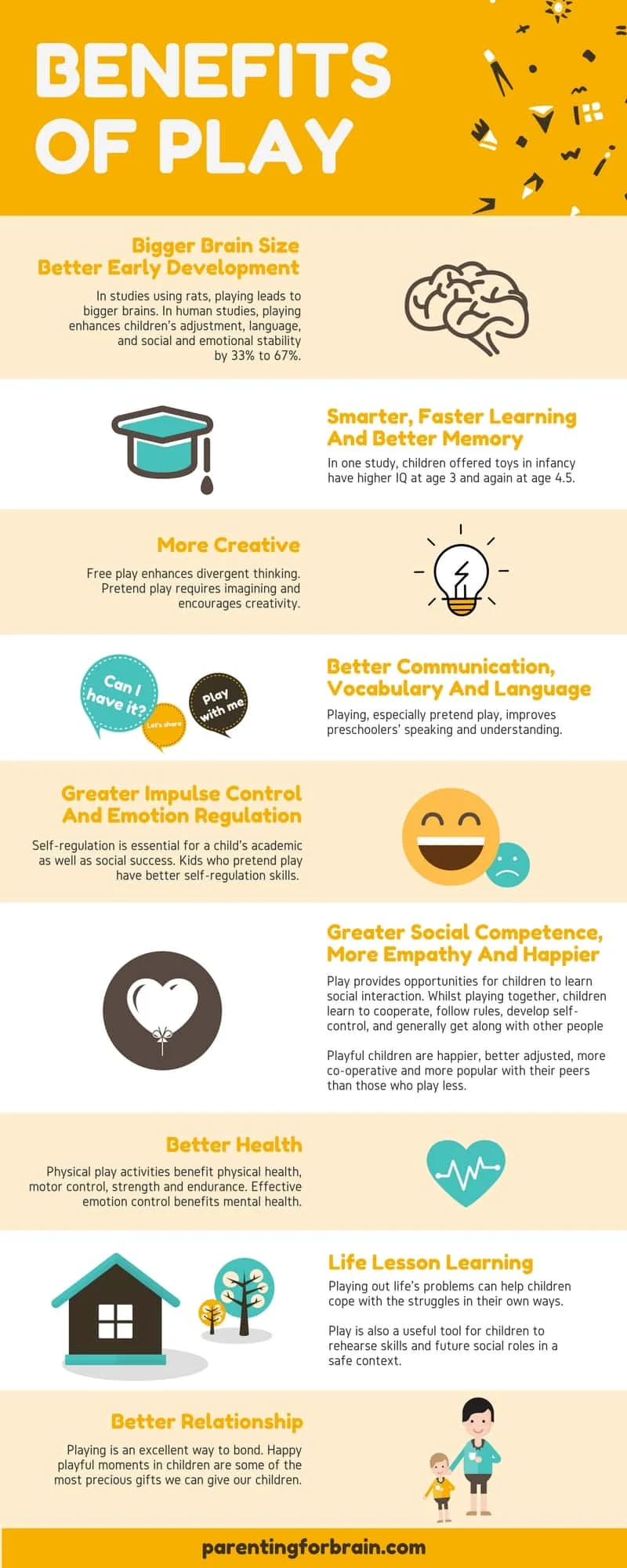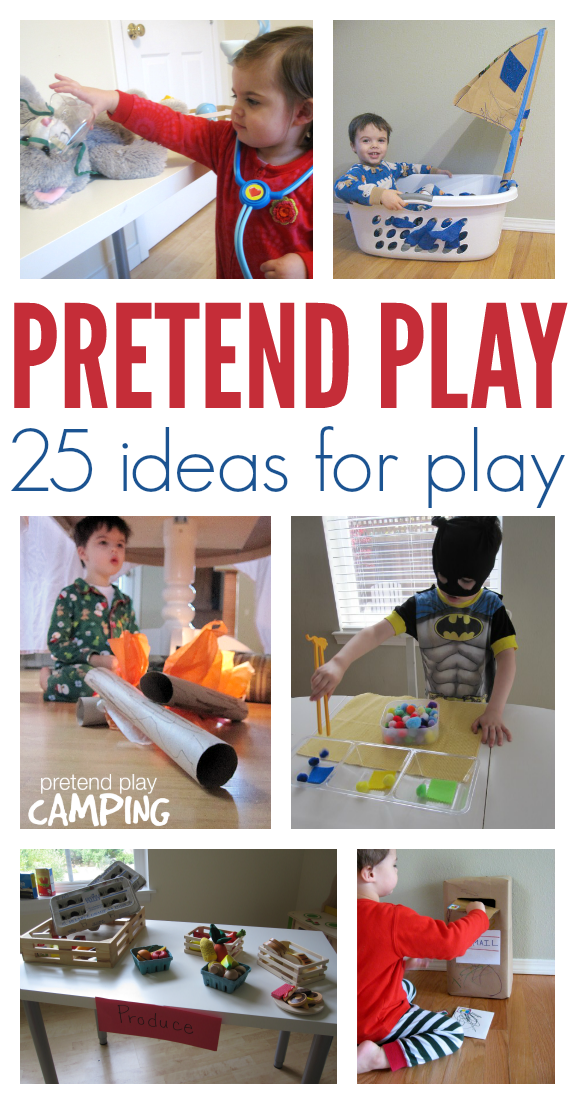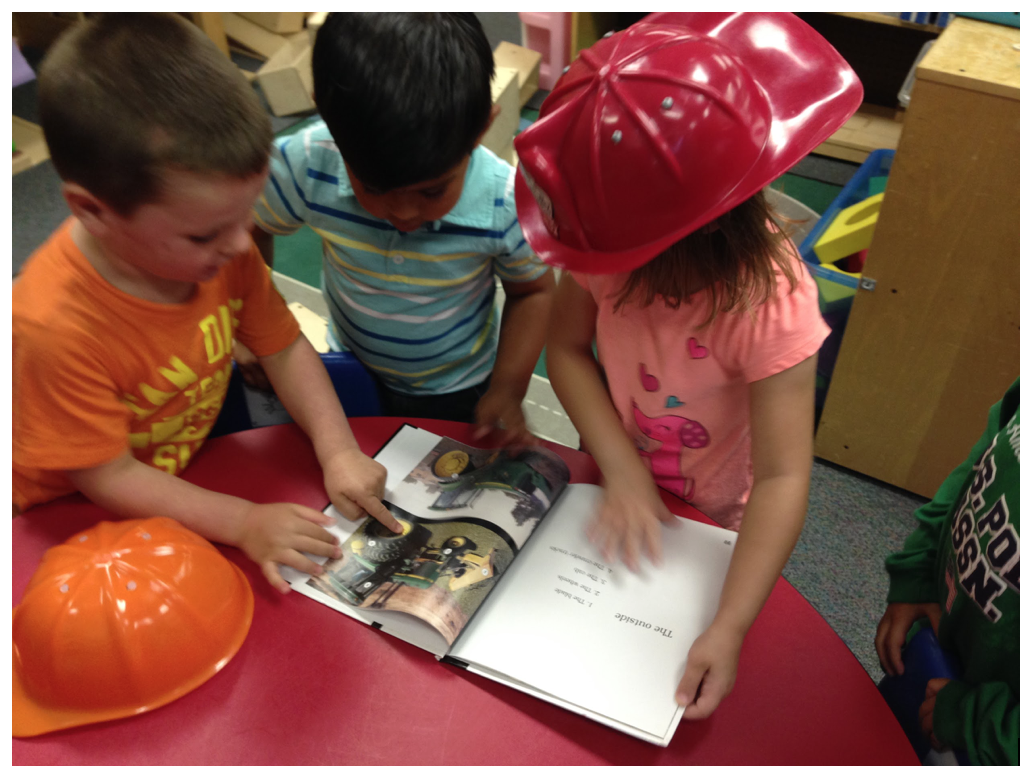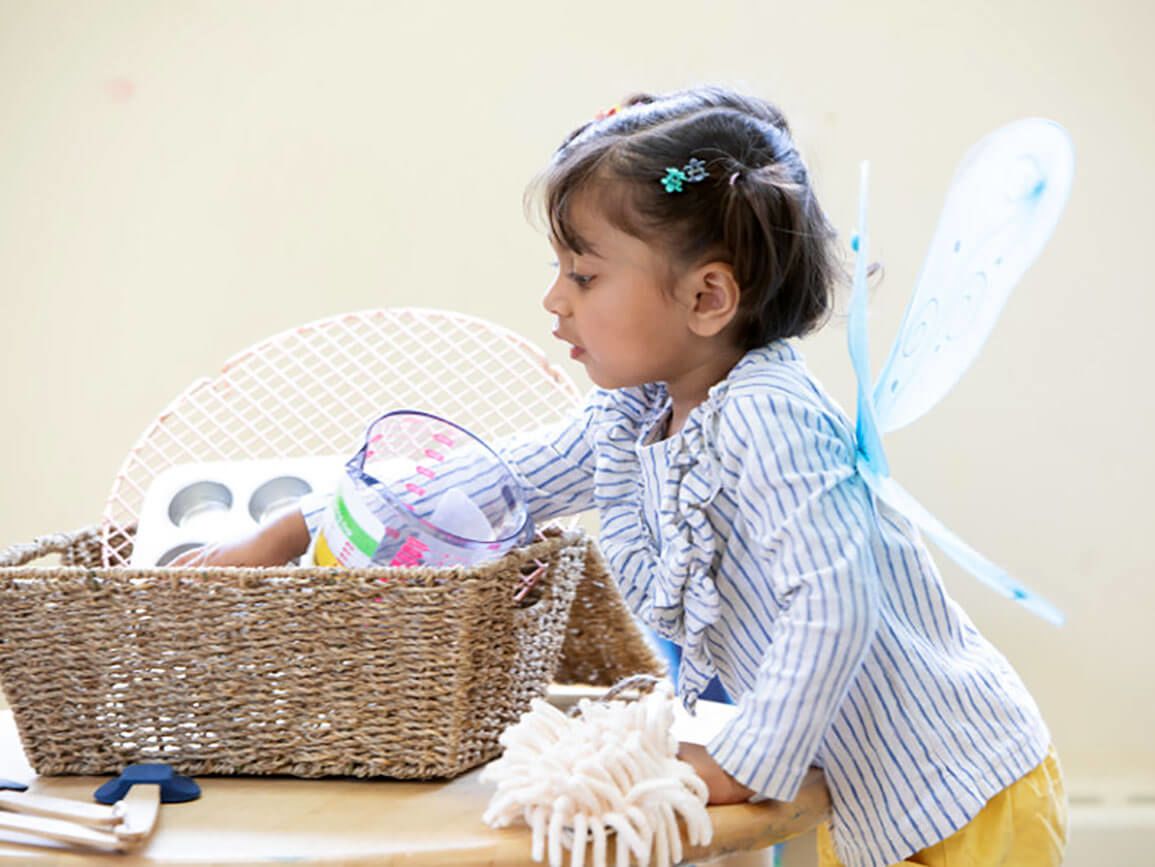Does your child love pretending. In particular puppets and stuffed animals can be very useful in modeling the use of cognitive strategies such as the contrast of irrational beliefs and the development of positive self-statements.
/2795461-preoperational-stage-of-cognitive-development-5b06ed6b04d1cf003a03cbe3.png)
Preoperational Stage Of Cognitive Development
Benefits Of Play For Child Development Bright Horizons
The Land Of Make Believe
This pretend play which allows different perspectives to be taken and during which ideas and emotions are moulded and rearranged is a major feature of a childs social and cognitive development.
Pretend play and cognitive development. Play also means going outside to explore and engage in physical activity. Strongly related to cognitive development predicted the amount of pretend play individuals engaged in as young children. The infant learns to imitate and pretend to play.
Your toddlers language will really start to develop as she begins to understand the emotion and tone used. Play includes planned events with cause-effect sequences. By contrast play that has a potential for fostering many areas of young childrens development including social and cognitive development has the following characteristics.
About toddler play and cognitive development. This is because play is one of the main ways that your child explores the world. Cognitive development is a field of study in neuroscience and psychology focusing on a childs development in terms of information processing conceptual resources perceptual skill language learning and other aspects of the developed adult brain and cognitive psychologyQualitative differences between how a child processes their waking experience and how an adult processes their waking.
Symbolic dramatic and sociodramatic play also known as pretend play occupies much of the play activity of 2- to 5-year-old children. Symbolic play is very natural to a child and is a highly creative form of play that will develop your childs intellectual skills. While cognitive therapy methods can be communicated directly to adults children may need to communicate them indirectly through play activities.
Physical development such as cruising walking and picking up items helps your toddler to accelerate her fine motor and cognitive development skills. Whether its two children wanting to play the same role or searching for the just right material to make a roof for the playhouse your child calls upon important cognitive thinking skills that he will use in every aspect of his life now and forever. Preschoolers want to learn how things work and they learn best through play.
Pretend-play with kitchen toys. The Power of Play. The Benefits of Play in Cognitive Development Editors note.
What Props are Used in Play. This makes sense because they are pretending to be someone else oftentimes adults. Pretend play events based on events child has seen or heard about but not personally experienced.
Are reflective a childs cognitive development particular up to the age of 3. Pretend play based on every day familiar activities. An important part of cognitive development in your toddler is understanding the cause and effect phenomenon.
Play is vital for your toddlers cognitive development that is your childs ability to think understand communicate make memories imagine and work out what might happen next. For example a child who uses a block as a cell phone. Specifically cognitive development is assessed based on the level of conception perception information processing and language as an indicator of brain development.
And 2 Children create specific roles-and rules-for pretend behavior and adopt multiple themes and multiple roles. You can still experiment with role-play. Find out how pretend play can spur child development while learning new dramatic play ideas activities and games.
Play is important for your preschoolers cognitive development that is your childs ability to think understand communicate remember imagine and work out what might happen next. Here we look at the 5 key reasons why teachers encourage their EYFS Key Stage 1 and Key Stage 2 learners to get involved in the world of make believe and to participate in pretend play every day. Cognitive development is important in early childhood through adolescence.
Pretend play also known as dramatic play or role play is critical for developing oral language. In the midst of creating a restaurant together clomping around in grown-up shoes or twirling around with friends in a fairytale land children are learning to solve problems coordinate cooperate and think flexibly. Symbolic play is when children engage in pretend or make-believe play using objects to represent other objects.
There is evidence that changes in physical activity associated with changes in the outdoor school play environment are different for boys and girls. Cognitive development is the way our thinking and understanding of the world around us changes and develops from birth to adulthood. Play permeates the TBRI empowering connecting and correcting principles and as Dr.
Cognitive development in preschoolers focuses on information processing such as attention memory decision-making language abilities learning and perceptional skills. Cognitive development in children refers to the development of their thinking process that involves the processing of information reasoning language development intellectual development and memory. This stage is followed by the concrete operational stage 7 to 11 years when the child uses logical operations when solving problems including mastery of conservation and inductive reasoning.
One of the best ways to promote your preschoolers cognitive development is through play and cognitive activities. While it may seem like a simple idea play is fundamental to forming trust-based relationships. 1 Children create a pretend scenario by negotiating and talking to peers and use props in a symbolic way.
Your childs brain is quickly developing and requires a lot of thinking and exploring. Cognitive development is the study of childhood neurological and psychological development. Rich in symbolism a stick becomes a horse or a sword childrens imagination takes over fueled by their growing command of language.
Creating Opportunities for Speech and Language Development e-Learning Course Development of Pretend or Symbolic Play Skills Developmental Age Developmental Stage of Symbolic Play and What it looks like. 30 It therefore seems likely that gender differences exist in the relationships between outdoor play cognition and social development. Child is now taking on a role.
Noting that there is a growing body of evidence supporting the many connections between cognitive competence and high-quality pretend play this article defines the cluster of concepts related to pretend play and cognition and briefly synthesizes the latest research on the role of such play in childrens cognitive social and academic development. Pretend play provides your child with a variety of problems to solve. A childs cognition also helps them to explore and resolve things.
A simple button toy that performs an activity lights up or gives out a sound is a fun way to teach your child cause and effect. Cognitive Development Definition. American Academy of.
Play means interacting with people and objects not watching videos or playing electronic games. Play disarms fear builds connectedness and teaches social skills and competencies for life. For instance you pretend to be a dog and suggest that your toddler is a cat.
It is generally recognized that cognitive development progresses with age as human. 28 There are also gender differences related to rough and tumble play 29 and pretend play. About preschooler play and cognitive development.
When shes finished cooking something yummy for you have her help you set a pretend table so you can enjoy a pretend meal together. Play with parents solo play and play with other children is key to a child developing not only promote cognitive development but physical social and language development as well. Researchers discovered that children engaged in pretend play often use higher forms of language than they would use in normal situations.
Bornstein 2006 reviewed evidence of the universality of pretend play although with cultural variations and inter-relationships between the complexity of this type of play and childrens emotional well-being. He is egocentric ie unable to perceive that people can think differently than him and everything good or bad somehow links to him. Pre-Symbolic Play 14-18 months.
Gpp Creative Play Supports Emotional And Cognitive Development Quality Care For Children

Cognitive Development In Early Childhood Chapter 9 Pgs Infants Children Ppt Download

Importance Of Play In Early Childhood 9 Benefits Infographic

25 Easy Pretend Play Ideas No Time For Flash Cards

The Importance Of Creative Play For Kids

Pretend Play Growing Children S Minds Early Learning Center
Cognitive Development In 3 5 Year Olds Scholastic Parents

Benefits Of Pretend Play Language Literacy Learning For Kids

